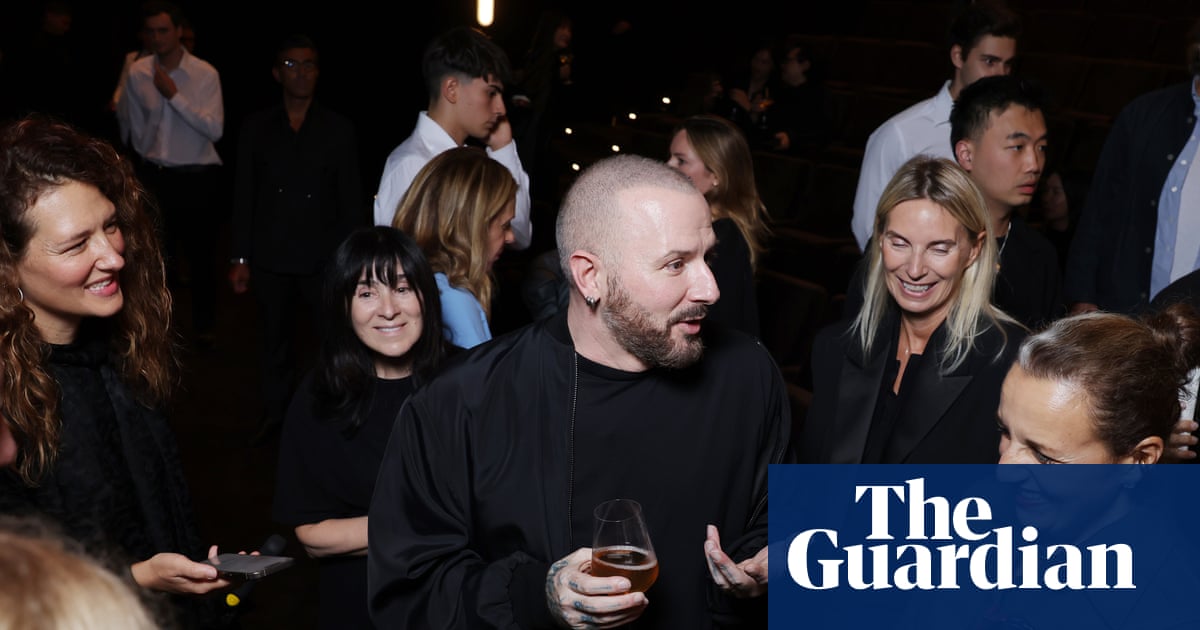Gucci has become bland, and new designer Demna has been hired to bring the hot sauce. But will the Italian brand’s walk on the wild side be a renaissance, or a mid-life crisis?
The first chapter of Demna’s Gucci, which opened Milan fashion week, appeared online a day ahead of schedule (very culturally modish, like a surprise-album-drop) and ditched the traditional catwalk format for a film by Spike Jonze and Babygirl director Halina Reijn about a fictional Barbara Gucci – “President of Gucci and of the State of California” – played by Demi Moore.
The film, a high-fashion mashup of House of Gucci and The Substance, was “about how we are all trying to be so perfect, and how impossible it is”, said Demna at the opening. The film’s wardrobe told a story about the Gucci family – the nerd, the narcissist, the party boy, the diva – which sent up the brand while celebrating it at the same time. In other words, Demna showed that he understands right away what Sabato de Sarno, his predecessor, never seemed to grasp, which is that Gucci has to be about more than just clothes.
De Sarno was abruptly let go from the Gucci top job earlier this year, as his brand of understated urban chic, politely received by critics, proved too dull for restless modern attention spans. Demna was a surprise choice replacement, a provocateur whose signatures are an almost-ugly bulky silhouette and headline-grabbing fashion week stunts including a catwalk show that turned out to be a Simpsons cartoon, and wrapping Kim Kardashian in duct tape. A bold hire for the home of glossy handbags and sensible, evergreen leather loafers.
Sipping non-alcoholic champagne before the film’s premiere at a screening room installed in Milan’s stock exchange, Demna said that he wanted to define “the allure” of Gucci. “If Gucci was a person, it would have a decisive and daring character, someone fun but intelligent with a strong point of view, who wanted to enjoy themselves,” he said. His Gucci iconography drew as much from Ridley Scott’s soapy 2021 biopic of the fashion house as it did from the archives of silk scarves and handbags. “Gucci is a non-traditional story: how this dysfunctional family evolved into one of the biggest brands,” said Demna, who attended the screening with his mum as his plus one. “I come from a very dysfunctional family, and the idea of family, and how imperfect or perfect that is, is one of the aspects of Italian culture that is very compelling to me.”
The 37 new Gucci looks, which will go on sale immediately in 10 Gucci stores worldwide, including London Bond Street, remain recognisably Gucci. No babies have been thrown out with the bathwater. Bamboo-handled bags and silk blouses still rule and the doomy, aggro energy that characterised his Balenciaga has been left behind in Paris for now. But Demna found a sideways kind of synergy with his new home. There are headscarves, which are both Gucci (where they are very Jackie Onassis on holiday) and Demna (more Eastern Bloc streetstyle). There are wallpapered-on logos, which can feel careful and bourgeois at Gucci, but looked trashy and provocative when Demna did them at Balenciaga.
The Gucci paradox is that it stands for a fundamentally conservative aesthetic – loafers, after all, are about as sensible as high fashion gets – but has had its glory days when headed up by designers who enjoy ruffling feathers. Gucci led the fashion conversation when Tom Ford spiced it up with X-rated adverts, and when Alessandro Michele made it a champion of pussy-bows-for-all gender fluidity. Demna has arrived at a company that is flatlining: sales at Gucci dropped 25% in the second quarter of the financial year, a serious problem for Kering, where it is the biggest brand in the group. Gucci needs a shake-up, and that is exactly what is on the cards.
